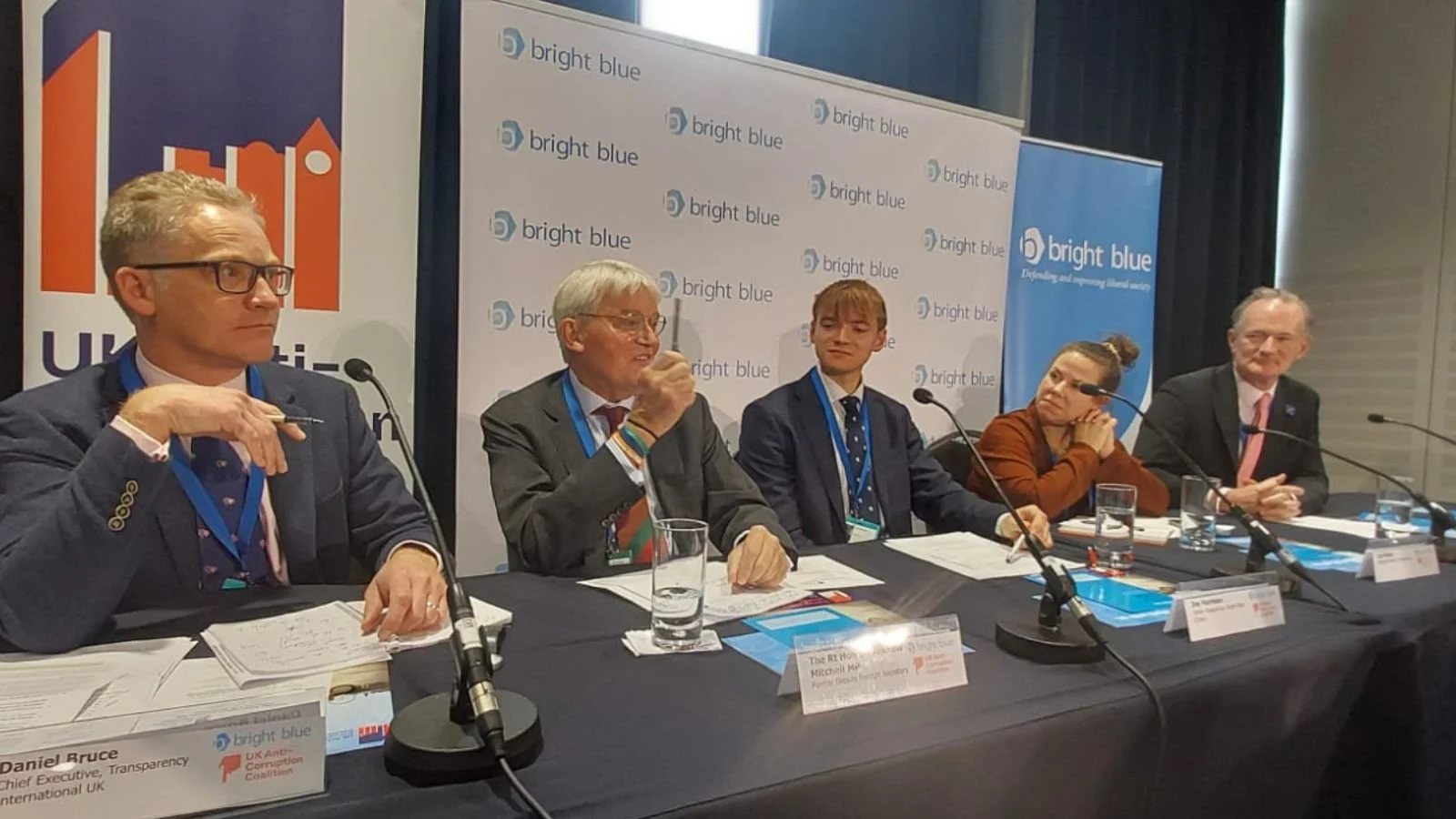From dirty money to clean politics: our takeaways from conference season
This year’s Labour Party Conference was a typically crowded affair, with hundreds of fringe events covering everything from the economy to national security. Encouragingly, anti-corruption issues cut through the noise, with two well-attended sessions in the programme — echoed by similar events at the Liberal Democrat and Conservative conferences hosted by the UK Anti-Corruption Coalition (UKACC).
UKACC’s panels on fighting corruption in the era of Trump examined how political finance is changing: outrage-driven online platforms and crypto create new revenue streams that make it harder to see where donated money originates. This shift poses challenges for transparency and requires cooperation from tech platforms and crypto intermediaries, much as regulators already expect from banks.
Transparency International UK and Spotlight on Corruption’s event on big money in politics highlighted the scale of this issue: in 2023, just 19 donors accounted for 66% of party funding – £56.5m – while polling shows 81% of UK millionaires believe extreme wealth buys influence, and 81% of the public think governance needs improving. That alignment shows there is broad appetite for proportionate reform.
Proposals discussed included limits on political donations, tighter spending rules, stronger checks on who really owns companies that make donations, and full transparency for crypto assets. After major political or social incidents, online hate content can quickly generate tens of thousands of pounds through advertising and engagement. When this money flows through opaque or poorly regulated systems, it risks rewarding and amplifying the most divisive voices. That in turn undermines public trust in democratic debate — which depends on people believing that politics isn’t being shaped by those who profit from outrage. Alongside this, operational independence for the Electoral Commission remains a foundation stone of trust – there was a consensus that, whichever team you play for, the umpire should be at arm’s length.
Co-Chair of the APPG Sir Andrew Mitchell speaking at UKACC’s panel event on corruption in the Trump era
The policy direction from the Government was encouraging. The Deputy Prime Minister put illicit finance at the heart of the Government’s agenda, confirming again in his conference speech that an Illicit Finance Summit will happen next year. The summit will bring together countries from around the world to strengthen international cooperation against money laundering, kleptocracy, and corruption. It’s a chance for the UK to reassert real global leadership — not just by hosting the discussion, but by setting the pace on how countries tackle corruption in an era of resurgent oligarchy and kleptocracy.
Ministers also appear more open to civil-society engagement on the Elections Bill — a shift that matters as Labour’s Stephen Doughty warns that corruption and kleptocracy “pose a direct threat to our national security and economic resilience.” He’s been clear that the Government must make good on its promise of “no safe haven for dirty money”, not least by pushing forward on beneficial ownership transparency in the Overseas Territories.
And in an unexpected announcement, the Chancellor revealed that nearly £400 million has already been recovered from pandemic-era contracts, alongside the creation of a specialist unit to chase down further Covid-related fraud — a signal that the Government wants to be seen as serious about clawing back misspent public money. It follows the High Court’s ruling against PPE Medpro, the company linked to Michelle Mone, which must repay £122 million for selling unusable surgical gowns through the Government’s VIP lane — a reminder of how pandemic profiteering still haunts Westminster’s reputation.
Winning policy traction is not easy in the current fiscal and security climate. But that is precisely why continuing to push for low-cost, practical measures matters: whether tightening Companies House processes or strengthening the independence of the Electoral Commission, incremental improvements will demonstrate how cleaner money supports investment, reinforces national security, and restores confidence in institutions.

